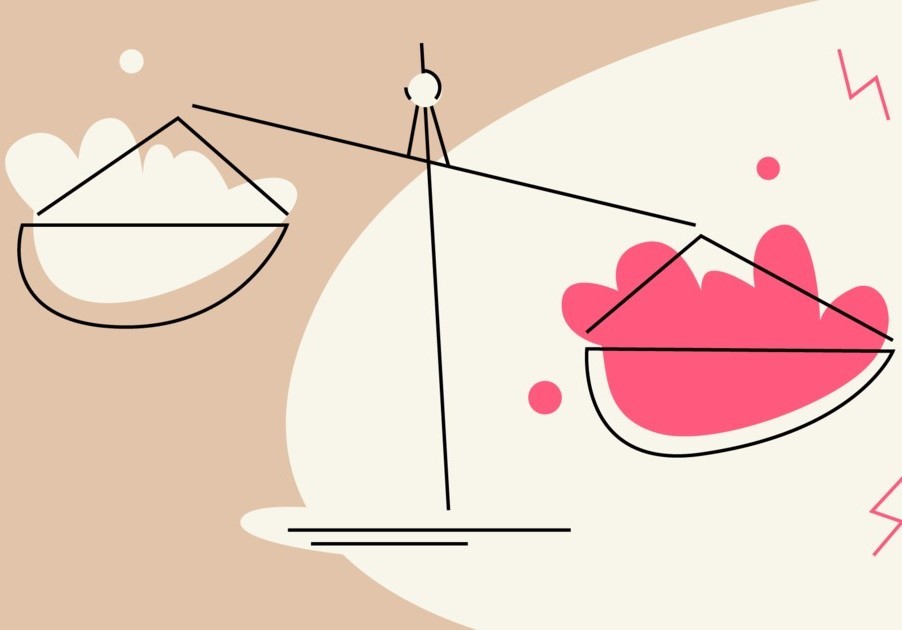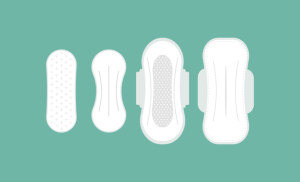You’ve probably heard of hormone imbalance, but do you know what it is, what causes it, and how to fix it?
In this blog, we’ll be discussing the causes, symptoms, and treatment options for hormonal imbalances. We’ll also provide some tips for managing this condition and outline some lifestyle changes that may help.
If you’re experiencing any of the symptoms mentioned below, or if you think you may have a hormonal imbalance, please consult your doctor.
Indeed, with the right care, you can manage your hormones and get back to living life as usual.

What is a Hormonal Imbalance?
Are you feeling exhausted, yet you can’t seem to get enough rest?
Maybe you’re having mood swings and trouble sleeping, or maybe you’re dealing with sudden breakouts and weight gain. If any of these sounds familiar to you, then it is very possible that what you may be experiencing is a hormonal imbalance.
So, what is a hormonal imbalance?
This occurs when one or more of your hormones are over- or under-produced in comparison to the others. Hormones are transmitted throughout your body by the endocrine system, which controls many of the major body processes affected by hormones.
If one hormone is out of balance, it can throw off the others, too—which is why it’s so important to address any issues as soon as possible.
Causes of Hormonal Imbalance
Hormonal imbalance has many potential causes, which can range from lifestyle factors to pre-existing medical conditions. Sometimes the cause is not known, which can make finding the right treatment more complicated.
Some of the most common causes of hormonal imbalance include:
- Stress: Stress and anxiety can lead to a decrease in progesterone and an increase in cortisol. This can affect your cycle and lead to side effects like bloating, mood swings, and fatigue.
- Poor diet: A diet that is low in essential vitamins and minerals may contribute to imbalances in blood levels of hormones. Eating a healthy, balanced diet is important for maintaining hormonal harmony.
- Lack of exercise: Regular physical activity helps to regulate hormone production. When you don’t exercise, it can reduce progesterone production and lead to other imbalances.
- Hormone-altering medications: Some medications such as birth control and steroids can alter hormone levels in the body, leading to an imbalance. It’s important to talk to your doctor about any medications you are taking that could be affecting your hormones.
- Age: As we age, our hormones naturally decline, putting us at risk for hormonal imbalance problems such as menopause or andropause (the male version).
Symptoms of Hormonal Imbalance
Hormonal imbalance can manifest itself in physical and emotional symptoms. How do you know if you have a hormonal imbalance?
The following are some of the most common signs:
- Hot flashes and night sweats: An onslaught of heat that leaves you soaked in sweat can be caused by a drop in estrogen levels during menopause.
- Weight fluctuations: An increase or decrease for no obvious reason can be due to hormones not functioning as they should.
- Sleep problems: Hormonal imbalances related to stress can cause insomnia or make it harder to wake up feeling refreshed.
- Mood swings and anxiety: Hormones affect the part of your brain that controls your emotions, so an imbalance may cause mood swings, low energy, and anxiety.
- Low sex drive: A decrease in hormones like testosterone can lead to a lack of sexual desire.
- Digestive issues: Imbalances in hormones like insulin and cortisol can lead to problems like bloating, constipation, and frequent diarrhea.
- Fatigue: Whether it’s due to low thyroid hormone levels or constantly fluctuating hormones due to stress, fatigue can be a sign of an imbalance.
- Skin problems: Changes in skin texture such as breakouts or dryness could be due to hormone imbalances like those caused by polycystic ovarian syndrome (PCOS).
Diagnosing and Testing for Hormonal Imbalance
Hormonal imbalance is a complex medical issue, and it can be difficult to diagnose. The good news is that there are a few tests you can get to help identify possible problems with your hormones.
1. Blood Tests
The first step in diagnosing hormonal imbalance is usually a blood test. This measures the levels of hormones in your blood, which can help your doctor determine if you have an imbalance. Additionally, some other markers like thyroid-stimulating hormone (TSH) and testosterone levels may be tested to get more information about your hormones.
2. Urine Tests
Urine tests measure the number of hormones in your body over several days. They’re particularly useful for checking hormone fluctuations over time, which can give your doctor an idea of any irregularities or imbalances that may be happening.
3. Imaging Scans
Imaging scans like X-Rays and ultrasounds may also be ordered by your doctor to get more information about any tumors or growths on the endocrine glands—thyroid, pituitary, hypothalamus—that could be causing hormonal imbalances. Imaging scans can also show any damage to the kidneys or liver, which could also cause hormone-related issues.
By using these three tests—blood tests, urine tests, and imaging scans—your doctor will have a better understanding of your hormone levels and can help diagnose any imbalances that might be present.
Treatments for Hormonal Imbalance
Hormonal imbalance can be uncomfortable and annoying, but there are treatments available to help you get back on track. The type of treatment you receive will depend on your symptoms, the severity of the imbalance, and the underlying cause.
1. Medication
In some cases, your doctor may recommend certain medications to help balance your hormones. These could include oral contraceptives, growth hormone replacement therapy, fertility drugs, or even testosterone replacement therapy for men.
As a result of these medications, it is possible that your period blood flow may get affected. So, to stay comfortable during those days, choose Essentials sanitary pads that are highly absorbent and odor free.
2. Lifestyle Changes
Making simple lifestyle changes can also make a world of difference. Eating a balanced diet rich in lean proteins and fresh fruits or veggies can help maintain optimal levels of hormones in the body. Exercising regularly can also help balance hormone levels – just make sure to warm up and cool down properly before and after each workout session!
Additionally, it’s a good idea to get regular sleep; aim for at least 8 hours per night. Avoiding excessive drinking and smoking is also beneficial for your overall health – both are linked to various hormonal imbalances.
3. Supplements & Herbs
Certain supplements and herbs can help address specific types of hormonal imbalances like low thyroid function (hypothyroidism). Check with your doctor first before taking any supplements as they may interact negatively with the other medications you might be taking.
With the right strategies in place, hormonal imbalances can be successfully managed so that you can live a happy and healthy life!
Diet and Lifestyle Considerations for Managing Hormonal Imbalance
One thing you can do to help manage your hormonal imbalance is to balance your diet and lifestyle. This means taking into consideration things like:
1. Increasing Consumption of Nutritional Foods
Nourishing your body with the right nutrients is the key in helping to regulate hormones. Eating foods rich in essential fatty acids, vitamins, and minerals, like vegetables, fruits, nuts, seeds, and legumes will help to promote balance in the body.
2. Limiting Unhealthy Foods
Unhealthy foods can be a feast for hormones. This means steering clear of processed food and refined carbohydrates. Not only do these lack nutrition but they also tend to cause spikes in blood sugar levels which can further contribute to hormone imbalances.
3. Getting Regular Exercise
In addition to eating healthy food, getting regular exercise is important. Exercise helps reduce stress levels, which can influence hormones like cortisol. Try including activities like walking, yoga, or high-intensity interval training (HIIT).
The bottom line is that improving nutrition and lifestyle habits can make all the difference when it comes to remaining balanced hormonally. Make sure you’re taking the time to listen to your body and give it what it needs – whether that’s rest or physical activity – so it’s functioning at its best!
No matter what the cause, the key is to recognize the signs of a hormonal imbalance and take steps to address it. From lifestyle changes and dietary shifts to natural remedies and hormone therapies, there are many options available to manage hormonal imbalances.
It’s important to remember that every person is unique, and what works for one person may not work for another. Finding the right treatment plan for your hormonal imbalance may take some trial and error, but it’s worth the effort to restore balance and well-being.
All in all, with the right combination of lifestyle and medical interventions, you can help reduce your symptoms and get back to feeling your best.







